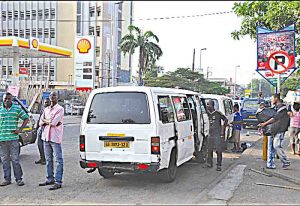By Godwin Owusu Frimpong
As the 2024 election season unfolds, former President John Dramani Mahama and the National Democratic Congress (NDC) are gaining attention with a remarkable policy proposal: the “24-hour economy.” This ambitious initiative aims to operationalize the economy around the clock, facilitating expanded business activity and job creation. But is this vision more of a political ploy than a realistic economic strategy? Given Mahama’s mixed legacy, marked by numerous unfulfilled promises during his last term, could the “24-hour economy” be a mere attempt to reclaim influence in a political landscape that has shifted significantly since the NDC was last in power?
The Vision Behind the ’24-Hour Economy’
During a recent media encounter, Mr. Mahama laid out the concept of a 24-hour economy, describing it as a catalyst for growth that would address unemployment and reduce dependency on imports. By promoting round-the-clock activity, he proposes to ignite economic exchanges, create jobs, and revitalize local production of essentials—ranging from food to pharmaceuticals. Mr. Mahama insisted that this policy is crucial for transitioning Ghana towards development and achieving self-sufficiency, reducing poverty, and boosting export capabilities.
The former president emphasized a vision of Ghana as a manufacturing hub, capable of supplying both domestic needs and foreign markets through incentives for local businesses. By aligning with the African Continental Free Trade Area (AfCFTA), businesses would be encouraged to expand their horizons beyond national borders. The comprehensive nature of his explanation paints a picture of a promising economic framework that appeals to a populace eager for change.
Skepticism: A History of Unfulfilled Promises
Yet, for many Ghanaian citizens, Mr. Mahama’s enthusiastic pitch conjures memories of ambitious policies from his previous administration that failed to materialize as promised. Critics argue that the “24-hour economy” is yet another ambitious plan that might not see the light of day—a sentiment echoed by the New Patriotic Party (NPP) and its supporters. The NPP has dismissed the proposal, claiming that the current administration has already established a framework for economic growth, albeit one fraught with challenges.
The question arises: do Ghanaians have reason to trust Mr. Mahama’s new vision, or has the rhythm of political rhetoric overtaken tangible policy implications? Detractors may see the 24-hour economy as a political maneuver to regain favor rather than as a viable plan, arguing that his track record diminishes the credibility of his present claims.
Resource Readiness: Are We Equipped?
The feasibility of establishing a 24-hour economy also hinges on the nation’s resource capacity—both human and material. While the ambition is commendable, the underlying question remains: can Ghana sustain such a paradigm shift? For businesses, transitioning to a 24-hour operation would require a reconfiguration of labor, capital, and infrastructure. Currently, concerns about electricity supply, security, and resource allocation challenge the practicality of such an endeavor.
Moreover, with Ghana grappling with economic challenges, including inflation and a burgeoning debt profile, the realization of the “24-hour economy” may necessitate significant investment and innovation, alongside a conducive policy environment. It raises the question of whether the NDC has concrete strategies to address these hurdles or whether the proposal remains a lofty ideal disconnected from reality.
The Verdict: A Political Gamble or a Sincere Path to Progress?
Mr. Mahama’s “24-hour economy” encapsulates a blend of hope and skepticism, drawing both admiration and criticism. It is an ambitious plan that aims to put Ghana on the path to a vibrant economy but stands on fragile ground due to past experiences and current realities. Whether this policy initiative can transcend political ambition and materialize into a transformative economic model remains to be seen. The electorate’s response will likely reflect a combination of optimism for potential change and caution born from historical precedents. As Ghana approaches the 2024 elections, Mahama’s challenge will be to persuade the populace that this time, with the NDC at the helm, the promises made will evolve into fruitful realities.
Godwin Owusu Frimpong





